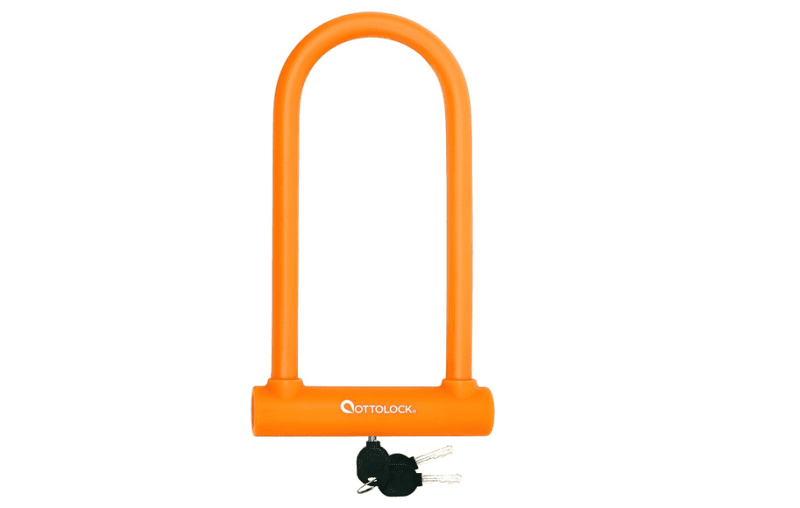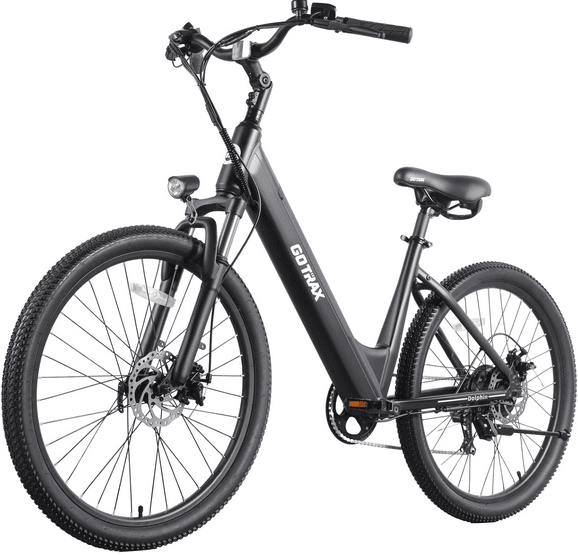The Pros and Cons of Folding Electric Bikes
Introduction
With the increasing popularity of electric bikes, a new trend has emerged - folding electric bikes. These innovative two-wheelers offer the convenience of easy storage and transportation combined with the benefits of electric-powered assistance. In this article, we will explore the pros and cons of folding electric bikes to help you decide whether they are the right choice for your needs.
Convenience and Portability
One of the biggest advantages of folding electric bikes is their compact design. These bikes can be easily folded and stored in small spaces like apartments, offices, or public transportation. This portability makes them an excellent choice for urban dwellers or commuters who need to combine cycling with other modes of transport.
Eco-Friendly Commuting
Folding electric bikes offer an eco-friendly alternative to traditional modes of transportation. Using electric power instead of fossil fuels, they help reduce carbon emissions and contributes to a greener environment. With the ability to efficiently cover short to medium distances, these bikes promote sustainable commuting and reduce traffic congestion.
Improved Fitness and Health
Contrary to popular belief, folding electric bikes still require pedaling. While they provide electric assistance, riders must still engage their leg muscles to pedal the bike. This activity promotes physical exercise and helps improve cardiovascular health. Folding electric bikes are ideal for individuals who want to incorporate fitness into their daily routines without overexertion.
Cost Savings
Although the initial cost of purchasing a folding electric bike might be higher than traditional bicycles, they offer long-term cost savings. With the electric motor's assistance, riders can travel greater distances without exerting excessive effort. This feature reduces the need for alternative transportation methods, such as cars or public transport, leading to potential savings on fuel, parking fees, and public transportation fares.
Versatility in Urban Environments
Folding electric bikes are highly versatile in urban environments. They can navigate traffic congestion more easily, allowing riders to travel efficiently in crowded areas. Additionally, their compact size allows for convenient parking and storage, eliminating the hassle of finding suitable bike racks or worrying about theft.
Limited Range
One of the limitations of folding electric bikes is their limited range compared to non-folding electric bikes. Due to their smaller size, folding electric bikes generally have smaller batteries, which results in a shorter distance they can cover on a single charge. This factor might be a drawback for riders who require longer travel distances without recharging.
Heavier Weight
Folding electric bikes are often heavier than traditional bicycles due to the additional components required for the electric motor and battery. While the folding mechanism allows for easy storage and transportation, the extra weight can make it more challenging to maneuver the bike when riding manually or folding/unfolding it.
Higher Initial Cost
The advanced technology and convenience of folding electric bikes come at a higher price than regular bicycles. The electric motor, battery, and folding mechanism contribute to the increased cost. However, it's essential to consider the long-term benefits and potential cost savings of folding electric bikes.
Maintenance and Repairs
Electric bikes, including folding ones, require regular maintenance and occasional repairs. The electric components, such as the motor and battery, need proper care to ensure optimal performance and longevity. Any mechanical issues or damages to the folding mechanism may require professional assistance, which can incur additional costs.
Safety Considerations
While folding electric bikes can enhance commuting experiences, it's important to consider safety factors. The electric motor can provide significant speed and acceleration, making it crucial for riders to adhere to traffic regulations and wear appropriate safety gear. Additionally, riders should be mindful of the bike's stability and balance, especially at higher speeds or uneven surfaces.
Limited Off-Road Capabilities
Folding electric bikes are primarily designed for urban environments and smooth roads. Their smaller wheels and limited suspension systems make them less suitable for off-road adventures or rough terrains. If you enjoy off-road cycling or plan to explore challenging landscapes, a non-folding electric bike might be a better choice.
 Battery Lifespan
Battery Lifespan
The battery lifespan of folding electric bikes can vary depending on usage, charging habits, and maintenance. Over time, batteries may experience reduced capacity, affecting the bike's range and performance. It's important to follow the manufacturer's guidelines for charging and storage to maximize the battery's lifespan.
Lack of Standardization
Due to the relatively new nature of folding electric bikes, there must be more size, design, and feature standardization. This can make it challenging to find compatible accessories or replacement parts. Before purchasing a folding electric bike, it's essential to consider accessories and maintenance support availability.
Conclusion
Folding electric bikes offer a unique blend of convenience, portability, and electric-powered assistance. They are well-suited for urban commuting, providing a greener, more cost-effective alternative to traditional transportation methods. However, they come with limitations such as limited range, higher weight, and a higher initial cost. Considering the pros and cons outlined in this article, you can decide whether a folding electric bike is right for your needs.
FAQs
- Are folding electric bikes suitable for long-distance rides?
- Folding electric bikes are more suitable for short to medium-distance rides. Their limited battery range might make long-distance rides challenging without frequent recharging.
- Can I ride a folding electric bike in the rain?
- Most folding electric bikes are designed to withstand light rain and splashes. However, it's important to check the manufacturer's specifications to ensure the bike's water resistance and take appropriate precautions.
- How long does it take to charge the battery of a folding electric bike?
- Charging times can vary depending on the battery capacity and charger specifications. On average, it takes around 3 to 6 hours to charge a folding electric bike's battery fully.
- Are folding electric bikes suitable for riders of all ages?
- Folding electric bikes can be suitable for riders of various ages, but it's important to consider individual fitness levels and capabilities. Always consult with a medical professional if you have any concerns.
- Do folding electric bikes require a driver's license?
- In most jurisdictions, folding electric bikes that meet specific criteria (e.g., maximum speed, power output) do not require a driver's license. However, regulations can vary, so it's important to familiarize yourself with local laws and regulations regarding electric bikes.
Recent Related Articles:
5 Common E-Bike Maintenance Mistakes to Avoid
Can You Ride an Electric Bike in The Rain?
Best Electric Bike Routes and Trails



